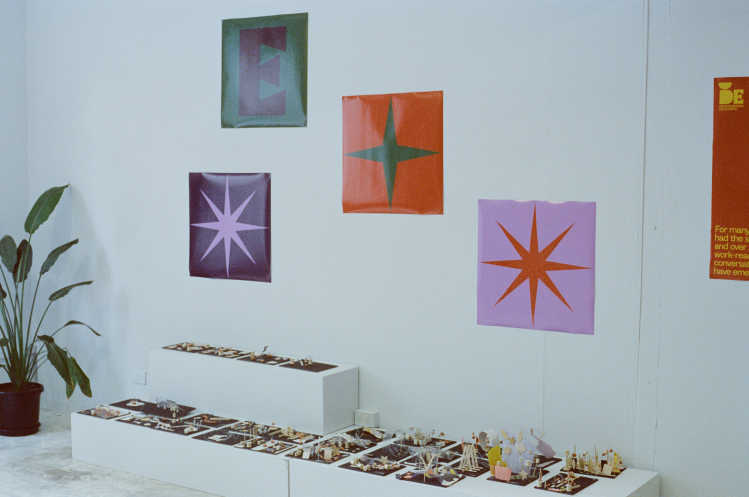
Update.Design: Melbourne Design Week 2022
Location:
Melbourne, AUS
Date:
21•10•22
Source:
Studio TunTun
Section:
Event Reflection
Author[s]:
- Katie Fridman
- Dalton Bruyns
- Jeremy Walker
As part of Melbourne Design Week 2022, Studio TunTun explored the possibilities lying ahead for the students of tomorrow: pulling apart, breaking down, examining the current modes of education in a highly interactive exhibition.
Update.Design Education (U.DE) rejects traditional and opaque structures of learning and begins to explore transparent, open and collaborative modes of learning that create lasting value for students in a rapidly changing world. By creating more worldly students, this exhibition asks, how do we better prepare them for a competitive and increasingly globalised landscape where an undergraduate degree no longer guarantees entry.
Update.Design Education set out to scope and test future models of education, including the proposed U.DE model. In two phases we gained qualitative data about the education landscape in Australia, including how the last few decades have shaped current practitioners and graduates. In the first phase we held an interactive exhibition, generating descriptive and speculative models of education to date. Phase two followed up the learnings gathered from the models in a guided discussion with 8 participants from the design and education fields.
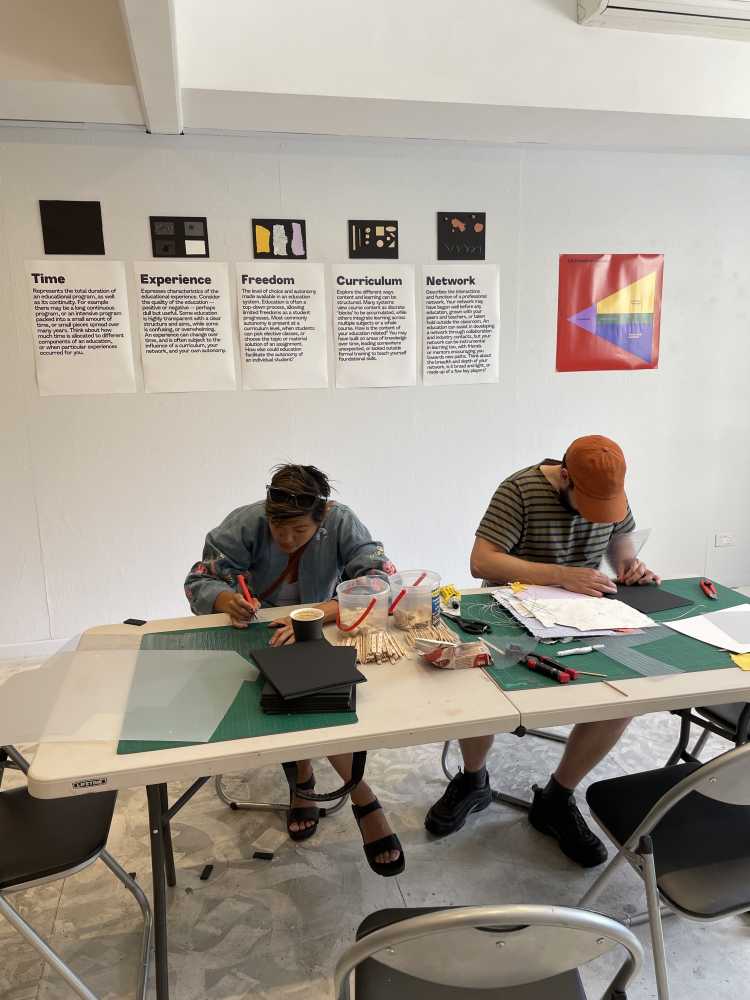
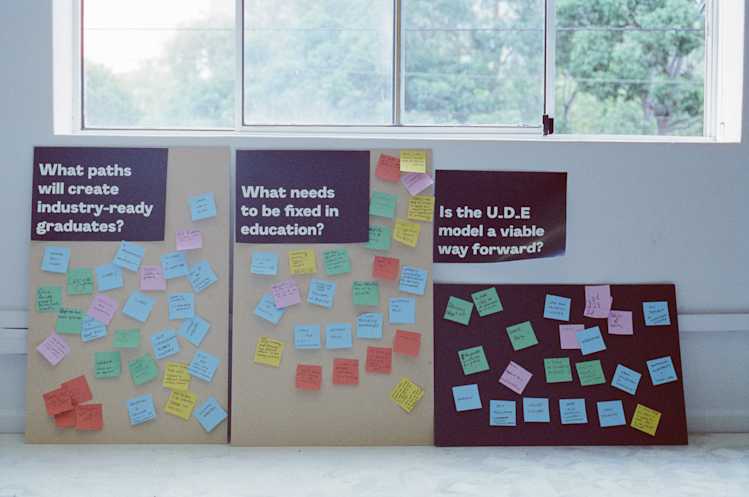
The exhibition design guided the audience to reflect on how the structure of their previous education had shaped their experience, not just the skills and knowledge they have gained. We broke down different educational systems into five themes: time, curriculum, experience, network, freedom, which corresponded with specific materials for model creation. Using distinctive construction material allowed participants to explore how the different structural components of their education interacted with each other, and drove rich conversations as we observed the progress and approach of each build. Each participant was encouraged to create two models, one to describe their past education experience, and one that visualised their ideal experience if they could do it again.
"The value lies in letting the model shift/be less straight forward and rigid"
The exhibition culminated in a round table discussion, interrogating systems, opportunities and constraints in design and education. Participants reflected on the models produced throughout the week, and explored possibilities for future structures. To kick off the dialogue, we explained our background research and some of the stories behind the exhibition models. As many of our participants were well established practitioners and teachers, we asked a recent graduate of both a Bachelor’s and Master’s design degree to compare her experiences with the two programs. Participants were then presented with three provocations to shape discussion about past, present and future practice: What needs to be fixed in education? What paths will create industry-ready graduates? Is the U.DE model a viable way forward?
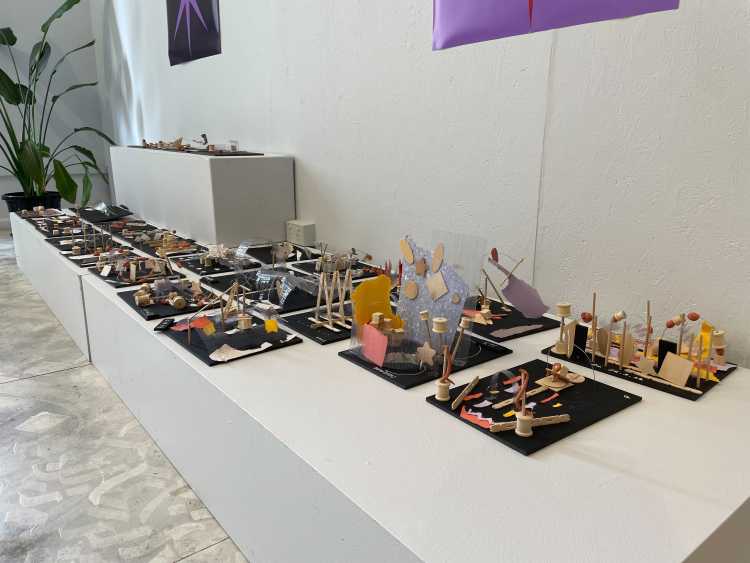
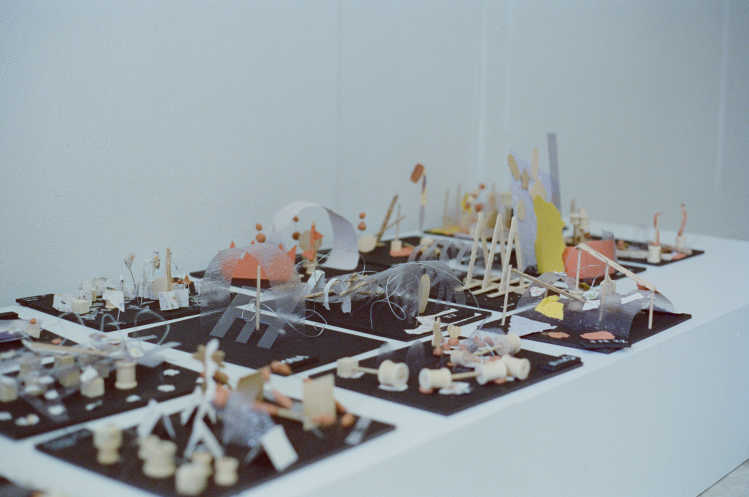
Participants could extensively discuss granular issues relating to their own experiences allowing the conversation to be framed around current inadequate systems — detailed through different lenses including study, pedagogy, employability, and practice — drawing out recurring themes in the participants’ preferred futures. These themes supported the proposed UD.E model and the underlying principles of Update.Design, particularly around critical dialogue, and a decentralised, non-western hegemony of design.
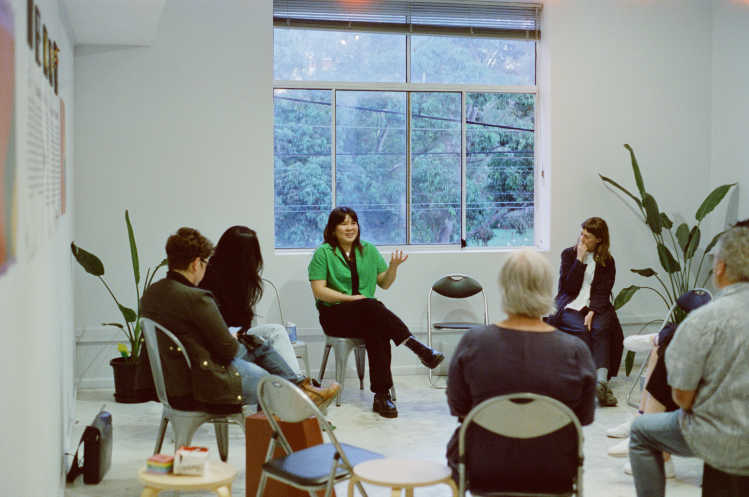
The Circular relationship between industry and education bears out the relevance of the Update.Design as a resource for contemporary industry, with strong potential and desire to develop a shared knowledge within industry boosted by greater transparency and partnerships. We look forward to sharing our full report of U.DE this month and the broader project of Update.Design in coming months.